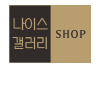● 에밀 - 작품 소개
장 자크 루소의 "에밀, 또는 교육에 관하여"는 젊은이들의 교육에 관한 철학적 논문이다. 이 책은 루소와 상상 속의 가정교사 사이의 대화로 구성되어 있는데, 그들은 젊은이가 도덕적이고 자유로운 개인이 되도록 교육하는 최선의 방법에 대해 논의한다.
'에밀'의 핵심 사상은 아이의 자연스러운 발달이 사회의 과도한 영향 없이 진행될 수 있도록 해야 아이가 완전히 실현된 개인으로 성장할 수 있다는 것이다. 루소는 아이들이 경험을 통해 교육을 받아야 하며, 그들이 주변 환경을 탐험하고 자신의 실수로부터 배울 수 있도록 해야 한다고 믿었다.
에밀의 핵심 주제 중 하나는 도덕 교육의 중요성이다. 루소는 젊은이들에게 도덕적이고 도덕적인 것을 가르쳐야 한다고 믿었지만, 이것은 엄격한 도덕률을 통해서가 아니라 자연적인 덕목의 배양을 통해 성취되어야 한다고 믿었다. 그는 또한 신체의 발달이 정신의 발달에 필수적이라고 주장하며 체육의 중요성을 강조했다.
전체적으로 '에밀'는 교육에서 가족의 역할, 종교교육의 중요성, 전통적인 교육제도의 위험성 등 교육과 관련된 광범위한 주제를 다룬 복잡한 작품이다. 이 책은 18세기와 19세기 교육 이론의 발전에 지대한 영향을 끼쳤으며, 이 책의 아이디어는 오늘날에도 계속 연구되고 논의되고 있다.
● 유명한 인용구
"인간은 자유롭게 태어나고, 어디서나 사슬에 묶여 있다."
이 인용구는 인류의 자연적 선함에 대한 루소의 믿음과 사회와 제도의 부패한 영향에 대한 그의 비판을 반영한다. 루소는 개인은 자유롭게 태어났지만, 법, 관습, 사회 계층을 포함한 사회의 제약은 그들의 자유와 행복의 잠재력을 제한한다고 믿었다. 그는 사회가 개인의 자유와 평등을 극대화하는 방향으로 구성돼야 하며, 교육은 한 사람의 타고난 재능과 능력을 개발하는 데 초점을 맞춰야 한다고 주장했다. 그 인용문은 개인의 자유와 인권을 위한 투쟁의 강력한 상징이 되었다.
● 작가 소개
장 자크 루소 (1712년-1778년)는 스위스-프랑스 철학자, 작가, 그리고 작곡가였습니다. 그는 계몽주의 시대의 가장 영향력 있는 사상가 중 한 명으로, 사회 계약 이론에 대한 그의 생각과 인간, 사회, 그리고 정부의 본질에 대한 이론으로 잘 알려져 있다.
루소의 가장 유명한 작품인 "사회계약"은 개인들이 사회를 형성하고 정부를 세우기 위해 서로 사회계약을 체결한다고 주장한다. 이 계약은 개인들이 정부가 제공하는 보호와 보안의 대가로 개인의 자유의 일부를 포기하는 것을 포함한다. 그러나 루소는 정부가 국민의 일반적인 의지에 기초해야 하며 단순히 지배 엘리트들의 이익을 위해 봉사하기보다는 사회의 공동선을 위해 노력해야 한다고 믿었다.
루소는 또한 교육과 인간 본성에 대한 그의 견해에 대해 광범위하게 썼다. 그는 인간은 본질적으로 선하지만, 사회와 그 제도가 인간을 타락시킬 수 있다고 믿었다. 그는 교육이 단순히 특정 직업이나 사회적 역할을 위해 준비하는 것이 아니라 한 사람의 타고난 능력과 재능을 개발하는 데 초점이 맞춰져야 한다고 주장했다.
인간, 사회, 정부의 본질에 대한 루소의 생각은 현대의 정치적, 사회적 사고에 중요한 영향을 미쳤다. 개인의 중요성과 사회적, 정치적 평등의 필요성에 대한 그의 강조는 민주주의 운동과 현대 자유주의의 발전에 영향을 미쳤다.
● Introduction to Emil
Jean-Jacques Rousseau's "Emile, or On Education" is a philosophical treatise on the education of young men. The book is structured as a dialogue between Rousseau and an imaginary tutor, in which they discuss the best way to educate a young man to become a virtuous and free individual.
The central idea of "Emile" is that the natural development of a child should be allowed to proceed without undue influence from society, so that the child can grow into a fully-realized individual. Rousseau believed that children should be educated through experience, and that they should be allowed to explore their surroundings and learn from their own mistakes.
One of the key themes of "Emile" is the importance of moral education. Rousseau believed that young men should be taught to be moral and virtuous, but that this should be achieved through the cultivation of natural virtues, rather than through strict moral codes. He also emphasized the importance of physical education, arguing that the development of the body was essential for the development of the mind.
Overall, "Emile" is a complex work that covers a wide range of topics related to education, including the role of the family in education, the importance of religious education, and the dangers of traditional education systems. The book had a profound influence on the development of educational theory in the 18th and 19th centuries, and its ideas continue to be studied and debated today.
● Famous quote
"Man is born free, and everywhere he is in chains."
This quote reflects Rousseau's belief in the natural goodness of humanity and his criticism of the corrupting influence of society and its institutions. Rousseau believed that individuals are born free, but that the constraints of society, including laws, customs, and social hierarchies, limit their freedom and potential for happiness. He argued that society should be organized in a way that maximizes individual freedom and equality, and that education should focus on developing a person's natural talents and abilities. The quote has become a powerful symbol of the struggle for individual liberty and human rights.
● Introduction to Jean-Jacques Rousseau
Jean-Jacques Rousseau (1712-1778) was a Swiss-French philosopher, writer, and composer. He was one of the most influential thinkers of the Enlightenment era, known for his ideas on social contract theory and his views on the nature of man, society, and government.
Rousseau's most famous work, "The Social Contract," argues that individuals enter into a social contract with each other in order to form a society and establish a government. This contract involves individuals giving up some of their individual freedoms in exchange for protection and security provided by the government. However, Rousseau believed that the government must be based on the general will of the people and that it should work towards the common good of society, rather than simply serving the interests of the ruling elite.
Rousseau also wrote extensively on education and his views on human nature. He believed that humans are inherently good, but that society and its institutions can corrupt them. He argued that education should be focused on developing a person's natural abilities and talents, rather than simply preparing them for a particular profession or social role.
Rousseau's ideas on the nature of man, society, and government have had a significant impact on modern political and social thought. His emphasis on the importance of the individual and the need for social and political equality has influenced democratic movements and the development of modern liberalism.


